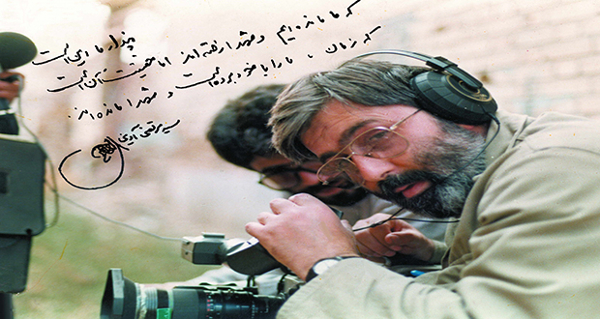image1
By Xavier Villar
After the 1979 Islamic Revolution, Iranian cinema gained international recognition as many prominent filmmakers burst onto the scene, with the world sitting up and taking notice.
Today, it is common to find Iranian movies being premiered in international film festivals and figuring on the lists of all-time greatest films, at least from the non-commercial point of view.
Among those who made it possible, a genius filmmaker who left a particularly significant imprint on the narrative and visual language of the Islamic Republic in its early years is Martyr Morteza Avini.
Martyr Avini (1947-1994) managed, through his cinematic works, especially his documentary on the 8-year war with Saddam Hussein’s Baathist Iraq titled Revayat-e Fath (Chronicle of Victory), to establish a new method of cinema in line with the political vision of the Islamic Republic.
Revayat-e Fath began airing on national television in 1986, six years after the start of the imposed war.
Thanks to its weekly broadcasts, it became a window through which the majority of Iran observed the war and its consequences. Its weekly transmission provided a collective experience for the audience, making them feel like they were part of the struggle for a common cause and against a common enemy.
Martyr Avini is considered the foremost theorist of the Sacred Defense cinema and a prominent figure among its founders.
His cinematic approach stands out as one of the finest examples of a political vision that aimed for autonomy and a departure from Western conventions on both visual and narrative levels.
It can be said that Martyr Avini was inspired by the work of the Iranian writer Jalal al-Ahmad, particularly his 1962 book ’Gharbzadegi,’ translated into Spanish as ’Occidentosis: una plaga de Occidente.’
In this book, al-Ahmad argued that Iran and Islam were the targets of ideological, political, and material attacks by the West and advocated for unity around an ’Iranian and Islamic identity’ as the solution.
It was this approach that inspired Martyr Avini to argue that, even though cinema is a ’Western technology,’ it should be adopted to reflect the needs of the Islamic Revolution.
It is precisely because of this need to portray the political in cinema that Avini’s work, especially his ’Chronicle of Victory,’ is considered one of the most prominent cultural products of the Revolution.
His political work was such that for many ideologues, Martyr Avini remains one of the key individuals responsible for popularizing the signifier ’martyr’ during the years of the war against Iraq.
This mobilization meant that the war imposed on Iran by the Iraqi dictator at the behest of Western powers was viewed through an epistemic-discursive Islamic tradition.
To understand the Islamic element in Martyr Avini’s cinema, it is crucial to consider his political affiliations, particularly his adherence to the political principles established by Imam Khomeini, the founder of the Islamic Republic.
When he, through his documentaries, viewed the war from the perspective of the antagonism between ’batil’ - falsehood - and ’haqq’ - truth, it also reflected Imam Khomeini’s political vision.
Imam Khomeini considered the struggle against the Pahlavi regime within the same epistemic horizon. In other words, it was not simply a matter of a secular national liberation struggle but a political necessity to dismantle an illegitimate system - ’batil’ - based on Western ontological supremacy.
Both Martyr Avini and Imam Khomeini shared a similar political-ontological vision that placed God at the highest level of the ontological hierarchy, thereby eliminating any ontological hierarchy among human beings.
This perspective was reflected in the way Martyr Avini and his team worked. All members of his team received training not only in filmmaking techniques but also in Shia revolutionary ideology.
He insisted that if they were not ideologically motivated and instructed, the team would not be able to perceive the divine ’truth’ of the war and, instead, would create films that portrayed its harsh reality.
Martyr Avini trained his team to blend in with the revolutionary fighters. They wore the same clothing and, in general, shared the same ideology.
For days, they slept in the same places as the combatants, ate the same food, and faced the same enemy, but instead of weapons, they carried cameras.
Thus, it can be said that both the Basij volunteers and Martyr Avini’s team shared a common mission: to embody the political principles upon which the Islamic Republic was founded.
Thus it is not surprising that the personality and works of Martyr Avini are not well-known outside of Iran. His cinema unfolds within narratives and political constructs that do not conform to a conventional view of the political, as perceived from a secular paradigm in the West.
Martyr Avini is not an easily comprehensible director. His visual, poetic, and political references, as well as the non-linear structure of his work, which relates to the difference between Western linear time and the divine time of Islam, make him a challenging director for Western audiences to assimilate.
He is unconventional due to his commitment to the visual and political consolidation of the Islamic Republic.
Xavier Villar is a Ph.D. in Islamic Studies and researcher who divides his time between Spain and Iran.











